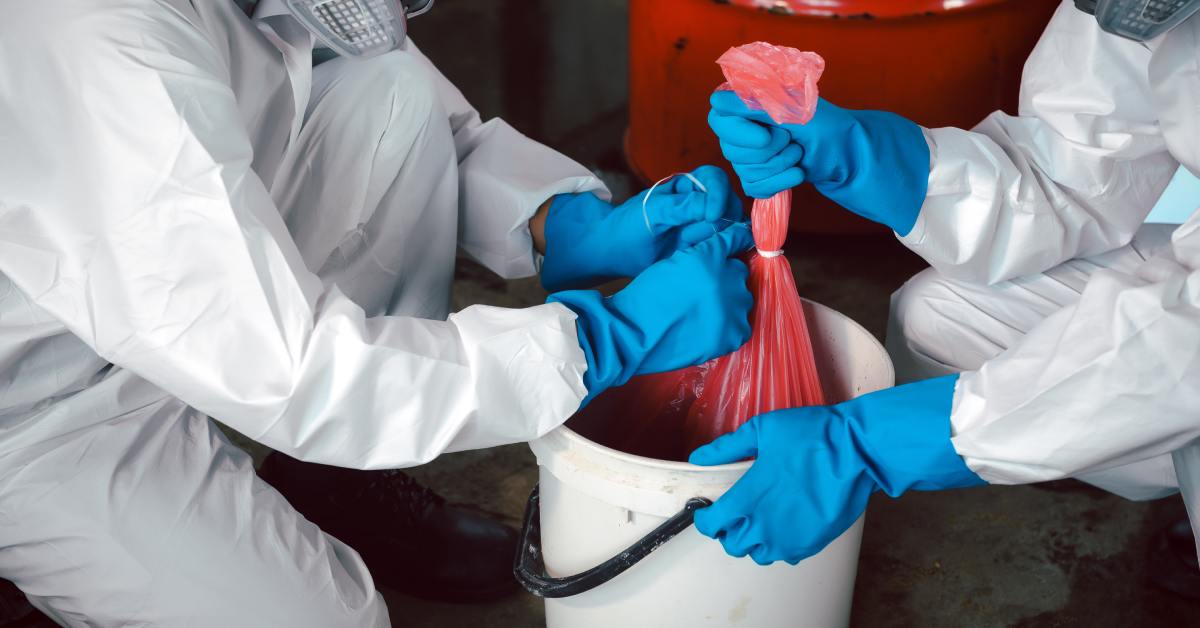Laboratories, manufacturing plants, and warehouses generate chemical waste daily. Proper handling of these materials protects workers, communities, and the environment.
Mismanaging the consequences of improper disposal of lab chemicals leads to serious legal, financial, and safety issues. Understanding these risks helps facilities maintain compliance and avoid costly mistakes.
Financial Penalties and Legal Action
Improper disposal of lab chemicals can lead to hefty fines from agencies like the EPA and state environmental departments, with violations costing tens of thousands, and repeat offenses reaching hundreds of thousands.
Serious violations might also result in criminal charges, including imprisonment for responsible parties, adding legal expenses. Also, poor compliance can cause insurance premiums to soar or policies to be canceled, increasing overall risks.
Regulatory Compliance Failures
Non-compliance damages a company’s reputation and erodes trust with stakeholders, including customers, investors, and employees. A tarnished public image can lead to lost business opportunities and long-term financial setbacks. This lack of trust and public scrutiny often attracts the attention of regulatory bodies, leading to more frequent and stringent oversight.
Failed Inspections Disrupt Operations
Regulatory bodies conduct routine and surprise inspections of facilities that handle chemical waste. When inspectors find violations, operations may halt immediately. Stop-work orders prevent normal business activities until facilities correct issues and demonstrate compliance.
The inspection process itself consumes valuable time and resources. Staff must gather documentation, respond to inquiries, and implement corrective actions. Production slows or stops entirely during these periods, impacting revenue and customer relationships.

Increased Oversight and Monitoring
Facilities with a history of violations face heightened scrutiny. Regulatory agencies are scheduling more frequent inspections and demanding detailed reporting. This increased oversight requires additional administrative work and documentation, pulling staff away from core responsibilities.
Some violations trigger mandatory third-party audits. Companies must hire external consultants to review procedures and verify compliance, adding another expense to the growing list of costs.
Workplace Safety Hazards
Mishandled chemicals threaten employee health and safety. Exposure to toxic substances causes acute injuries and long-term health problems. Workers may develop respiratory issues, skin conditions, or systemic illnesses from contact with improperly stored chemicals.
Chemical Reactions and Accidents
Storing incompatible chemicals together can cause hazardous reactions. Combining certain substances may release toxic gases, cause fires, or lead to explosions. Such incidents can harm workers, damage equipment, and contaminate facilities.
Spills from broken containers can spread dangerous materials across workspaces, requiring specialized cleanup equipment and trained personnel. During cleanup, areas are often off-limits, reducing available space and delaying operations.
Long-Term Health Effects
Chronic exposure to chemical waste leads to serious health conditions. Workers may develop cancers, neurological disorders, or organ damage over time. These health issues result in workers’ compensation claims, increased insurance costs, and potential lawsuits.
Environmental Contamination
Poor chemical waste disposal harms the surrounding ecosystems. Chemicals that enter soil and groundwater spread beyond facility boundaries. Contamination affects nearby communities, wildlife, and natural resources.

Soil and Water Pollution
Leaked chemicals seep into the soil, where they can last for years or even decades. Rain and irrigation wash these pollutants further, eventually reaching groundwater sources. Once groundwater becomes contaminated, cleanup becomes very difficult and expensive.
Surface water contamination happens when chemicals enter streams, rivers, or lakes. This causes direct harm to aquatic life and leads to water quality problems for communities downstream. Farms using contaminated water may face crop damage and health issues in their livestock.
Air Quality Issues
Some improperly stored chemicals release volatile organic compounds (VOCs) into the air. These emissions contribute to poor air quality, affecting respiratory health for workers and nearby residents. Facilities that cause air pollution face additional regulatory scrutiny and emissions control requirements.
Reputation Damage and Community Relations
News of environmental violations spreads quickly. Local media coverage, social media posts, and community discussions amplify the impact of disposal incidents. Companies struggle to rebuild trust after becoming known for poor environmental practices.
Customer and Client Concerns
Business clients increasingly prioritize working with environmentally responsible partners. Manufacturers and warehouses that fail to manage chemical waste effectively lose contracts and partnerships. Potential customers choose competitors with stronger environmental records.
Negative publicity affects recruitment efforts. Top talent seeks employers with strong safety and environmental track records. Facilities with violations find it harder to attract qualified workers, impacting operational efficiency.
Community Opposition
Residents near facilities with disposal violations voice concerns at public meetings and through local government channels. Community opposition can lead to stricter local regulations, increased inspections, and challenges to operating permits.
Some violations trigger citizen lawsuits. Community members affected by contamination seek damages through legal action. These cases add to the financial burden and prolong negative publicity.
Operational Disruptions and Inefficiencies
Poor chemical waste management creates workflow problems. When staff lack clear disposal procedures, chemicals accumulate in work areas. Cluttered laboratories and storage rooms reduce efficiency and increase the risk of accidents.
Disorganized Waste Streams
Without proper tracking systems, facilities lose visibility into their waste generation. Unidentified containers pile up, creating safety hazards and compliance issues, and staff waste time investigating mystery chemicals instead of focusing on productive work.
Mixed waste streams cost more to dispose of. When compatible and incompatible chemicals are combined, specialized separation and disposal become necessary. These services carry premium prices compared to properly segregated waste.
Emergency Response Costs
Chemical incidents require immediate response. Emergency cleanup crews charge substantial fees for rapid deployment. Facilities must also pay for specialized disposal of spilled materials and contaminated cleanup supplies.
Post-incident investigations divert staff from their regular duties. Analyzing what went wrong, implementing corrective actions, and documenting changes requires significant time investment.
Liability for Off-Site Disposal
Under RCRA regulations, waste generators maintain liability from “cradle to grave.” Facilities remain responsible for their chemical waste even after it leaves their property. This liability extends to disposal sites and transportation incidents.
Transportation Incidents
Chemical spills during transport trigger generator liability. Accidents involving improperly packaged or documented waste result in fines for the originating facility. Cleanup costs and environmental damage claims become the generator’s responsibility.
Facilities must verify that haulers maintain proper licenses and insurance. Choosing unqualified transporters to save money often backfires when incidents occur.
Disposal Site Issues
Generators face liability when disposal sites experience environmental problems. If a disposal facility closes due to contamination or bankruptcy, generators may share cleanup costs for materials they sent to the facility. Due diligence in selecting reputable disposal partners protects against these scenarios.
Protect Your Facility with Professional Support
Understanding the consequences of disposing of lab chemicals improperly helps facilities prioritize proper waste management. Manufacturers, warehouses, and monthly waste generators can’t afford the risks associated with non-compliance.
Professional waste management services eliminate guesswork and reduce liability. Clean Management’s lab pack services handle identification, segregation, packing, transportation, and disposal of hazardous materials. Contact us today for a free quote and discover how proper lab chemical disposal protects your operation, your budget, and your reputation.


